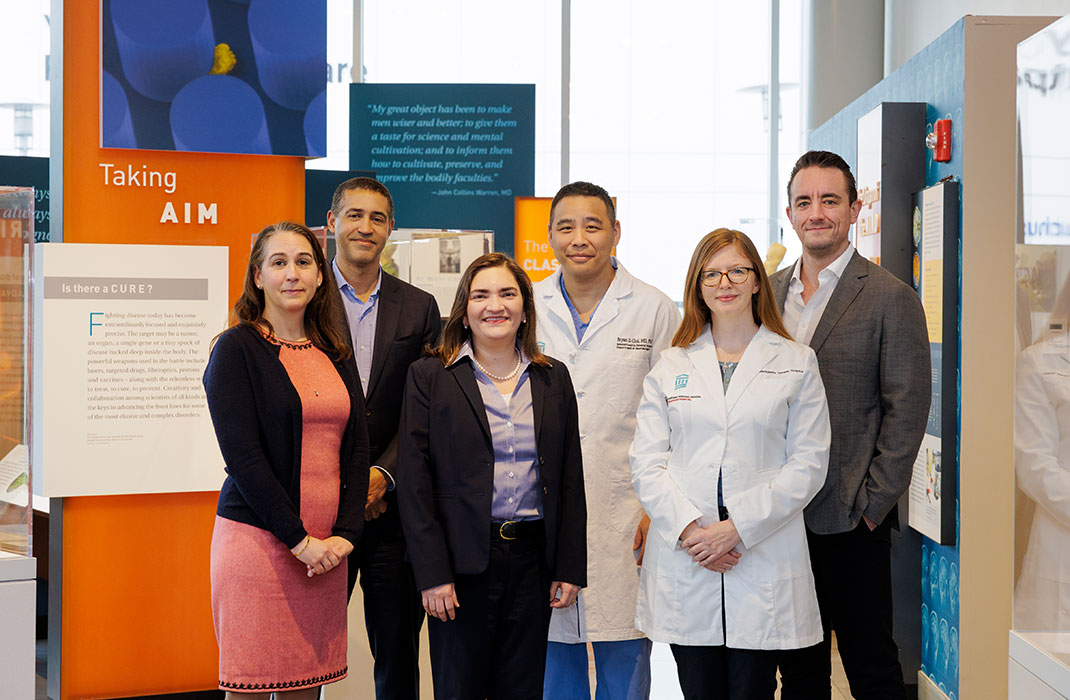-
- Find Care
-
- Visitor Information
- Find a Location
- Shuttles
- Visitor Policies
-
-
- Our Virtual Care Options
- 24/7 Virtual Care
- Virtual Visits for Primary & Specialty Care
- Online Second Opinions
- Participate in Research
-
- Contact us
-
- For Innovators
- Commercialization Guide for Innovators
-
-
- Research News
- Alzheimer's Disease
- Artificial Intelligence
-
- Overview
-
- Overview
- Getting Started
- New to Mass General Brigham
- International Patient Services
- What Is Patient Gateway?
- Planning Your Visit
- Find a Doctor (opens link in new tab)
- Appointments
- Patient Resources
- Health & Wellness
- Flu, COVID-19, & RSV
- Billing & Insurance
- Financial Assistance
- Medicare and MassHealth ACOs
- Participate in Research
- Educational Resources
- Visitor Information
- Find a Location
- Shuttles
- Visitor Policies
- Find Care
-
- Overview
- Our Virtual Care Options
- 24/7 Virtual Care
- Virtual Visits for Primary & Specialty Care
- Online Second Opinions
-
- Overview
- Participate in Research
-
- Overview
- About Innovation
- About
- Team
- News
- For Industry
- Venture Capital and Investments
- World Medical Innovation Forum (opens link in new tab)
- Featured Licensing Opportunities
- For Innovators
- Commercialization Guide for Innovators
- Contact us
-
- Overview
- Information for Researchers
- Compliance Office
- Research Cores
- Clinical Trials
- Advisory Services
- Featured Research
- Two Centuries of Breakthroughs
- Advances in Motion (opens link in new tab)
- Brigham on a Mission (opens link in new tab)
- Gene and Cell Therapy Institute
- Research News
- Alzheimer's Disease
- Artificial Intelligence
-
- Overview
-
- Overview
- Residency & fellowship programs
- Brigham and Women's Hospital
- Massachusetts General Hospital
- Mass Eye and Ear
- Newton-Wellesley Hospital
- Salem Hospital
- Integrated Mass General Brigham Programs
- Centers of Expertise
- Global & Community Health
- Health Policy & Management
- Healthcare Quality & Patient Safey
- Medical Education
- For trainees
- Prospective trainees
- Incoming trainees
- Current trainees
- Continuing Professional Development
What are gene and cell therapies?
Gene and cell therapies are advanced medical treatments aimed at stopping or slowing disease progression. Gene therapy involves replacing or modifying faulty genes with corrected versions, while cell therapy replaces or repairs damaged cells. Gene editing, utilizing tools like CRISPR, enable targeted and programmable repair of damaged gene products. Mass General Brigham offers a range of FDA-approved gene and cell therapy treatments for various medical conditions, including certain types of cancer, hereditary diseases, and blood disorders.
Types of therapies
Many diseases can involve a genetic component — a missing gene, multiple copies of a gene, or a gene that is structurally defective. Gene therapy is the process of replacing or modifying genes to correct a deficiency, sometimes by altering the DNA sequence of the target gene or by modifying expression of a gene by turning it off or on. Gene therapy can have an especially profound effect in congenital diseases where the disease is associated with malfunction of a single gene. Researchers are working to identify such genes and develop therapies to replace or modify genes.
Cell therapy involves replacing or modifying cells to treat disease. Cell therapy can use cells from another person (allogenic) or the person’s own cells (autologous), which may or may not be genetically altered.
Autologous, modified cell therapy is personalized to treat an individual’s condition where scientists take the person’s own cells and genetically change them outside the body, expand the number of modified cells, and then reinfuse these modified cells to produce a therapeutic benefit. Such therapies alter the patient's cells so their immune system can now target and destroy previously stealth diseased cells.
Examples of cells that are modified to treat disease include T-cells (commercialized as chimeric antigen receptor T cells; CAR-T cells), B-cells, Natural Killer (NK) cells, Tumor Infiltrating Lymphocytes (TILs), and Dendritic Cells (DCs).
Gene editing is the modification of a cell’s DNA with great precision using tools, such as CRISPR-based biotechnologies, that enable programmable and targeted repair of damaged gene products.
Treatments
Mass General Brigham offers FDA-approved gene and cell therapies for many types of medical conditions. Talk to your provider for more information or find a Mass General Brigham specialist.
The list of approved therapies is growing. For the latest information, please visit the FDA page.







